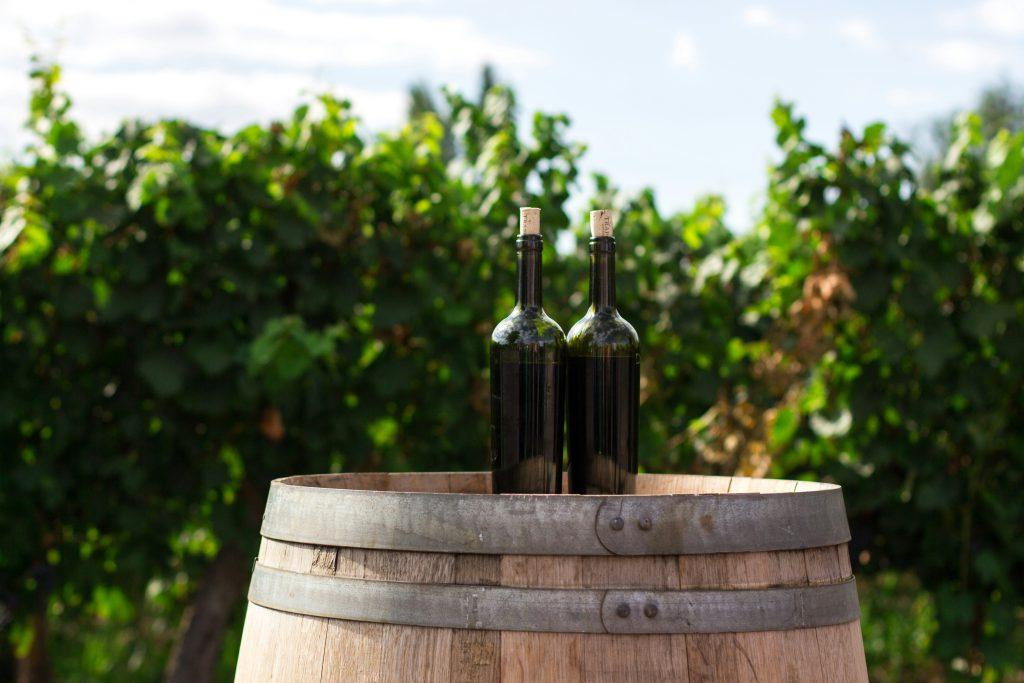
As consumers become more conscious of environmental and health concerns, the demand for sustainable and organic products has surged across many industries, including wine. Sustainable and organic wines are gaining popularity for their eco-friendly production methods, commitment to biodiversity, and often more natural approach to winemaking. If you’re curious about these eco-friendly wine choices and what sets them apart, this guide will give you everything you need to know.
What Are Sustainable and Organic Wines?
While the terms “sustainable” and “organic” are sometimes used interchangeably, they refer to distinct farming practices and philosophies. Let’s break down what each of these terms means in the world of wine.
1. Organic Wines
Organic wines are made from grapes that are grown without the use of synthetic pesticides, herbicides, fungicides, or fertilizers. Organic viticulture prioritizes the health of the soil, plants, and ecosystem, and it aims to work in harmony with nature.
- Certification: Organic wines are certified by regulatory bodies, such as USDA Organic in the U.S., EU Organic in Europe, or Ecocert in France. These certifications ensure that strict organic farming practices are followed, from vineyard to bottle.
- No Synthetic Additives: In addition to organic farming, many organic wines minimize or eliminate the use of synthetic additives during winemaking, such as sulfur dioxide (a preservative often used in conventional wines). However, some organic wines may still contain small amounts of sulfites for preservation.
Benefits of Organic Wines:
- Fewer chemicals in the vineyard, which is better for the environment and potentially for your health.
- Wines that are a truer expression of the terroir, as they aren’t masked by synthetic inputs.

2. Sustainable Wines
Sustainable winemaking goes beyond organic practices to include a broader approach to environmental and social responsibility. It focuses on reducing the overall environmental footprint of the wine production process while maintaining economic viability and social equity.
- Environmental Practices: Sustainable wineries focus on water conservation, energy efficiency, and reducing carbon emissions. Many use renewable energy, implement recycling programs, and work to preserve biodiversity in and around the vineyard.
- Social and Economic Responsibility: Sustainability also considers the well-being of vineyard workers, the local community, and the long-term health of the business. Fair wages, worker safety, and community support are all part of a sustainable philosophy.
- No One-Size-Fits-All Certification: Unlike organic wines, sustainable wines don’t have a single certification. Instead, different countries and regions have their own sustainability standards, such as Certified California Sustainable Winegrowing or Terra Vitis in France.
Benefits of Sustainable Wines:
- A holistic approach to environmental stewardship, which includes not only organic farming practices but also energy and water conservation.
- An emphasis on long-term sustainability, both environmentally and economically, ensuring that winemaking can continue for generations without depleting resources.
3. Biodynamic Wines
Biodynamic wines take sustainability a step further by incorporating a holistic, almost spiritual approach to farming. Based on the teachings of Austrian philosopher Rudolf Steiner, biodynamic farming views the vineyard as a self-sustaining ecosystem, where everything is interconnected, from the soil to the stars.
- Cosmic and Lunar Influence: Biodynamic farmers follow a calendar that’s influenced by lunar cycles and planetary movements, believing that these forces impact the vitality of the vines and the quality of the wine.
- Natural Preparations: Biodynamic farming uses composts and natural preparations made from herbs, minerals, and animal manure to enhance soil fertility and encourage plant health.
Benefits of Biodynamic Wines:
- Enhanced focus on the vineyard as a living ecosystem, leading to healthier soils and more resilient vines.
- Biodynamic wines are often seen as even more “natural” than organic wines, with minimal intervention in the winemaking process.

Why Choose Sustainable and Organic Wines?
There are several reasons why more wine enthusiasts are opting for sustainable and organic wines. These choices not only benefit the environment but can also provide unique flavor experiences.
1. Environmental Impact
Conventional wine production often relies on chemical inputs that can degrade the soil, harm local ecosystems, and contribute to pollution. Sustainable and organic wines, by contrast, focus on preserving and regenerating the land. Organic farming techniques encourage biodiversity, protect local wildlife, and prevent chemical runoff into rivers and streams. Sustainable wineries may go even further by reducing their carbon footprint, conserving water, and using renewable energy.
2. Health Considerations
Many people are concerned about the long-term effects of consuming products that have been exposed to synthetic chemicals. Organic wines, which are free from synthetic pesticides and fertilizers, can offer peace of mind to those seeking a cleaner, more natural product. While most wines contain sulfites (a natural byproduct of fermentation), organic wines often have lower levels of added sulfites, which may appeal to consumers who are sensitive to these preservatives.
3. Flavor and Terroir Expression
Wines made from organically or biodynamically farmed grapes tend to have a more authentic expression of terroir. The absence of synthetic chemicals allows the natural characteristics of the soil, climate, and grape variety to shine through in the wine. For those who value wines that reflect the place they come from, sustainable and organic wines can offer a purer, more distinct flavor profile.
4. Support for Ethical and Responsible Farming
Choosing sustainable and organic wines supports farmers and winemakers who are committed to responsible stewardship of the land. These producers often go to great lengths to ensure that their practices are both environmentally friendly and socially responsible. By purchasing sustainable and organic wines, you are investing in the future of winemaking and helping to protect the planet for future generations.
How to Identify Sustainable and Organic Wines
When shopping for sustainable and organic wines, it’s helpful to know what certifications and labels to look for. Here are a few key certifications:
- USDA Organic: For wines made in the U.S., this label guarantees that the grapes were grown organically and that no synthetic additives were used in production.
- EU Organic: The European Union’s organic certification for wines guarantees similar standards to the USDA Organic label.
- Demeter: This is the certification for biodynamic wines. It ensures that the wine was produced following biodynamic principles.
- Certified California Sustainable Winegrowing: A certification for California wineries that meet sustainability standards across various environmental, social, and economic factors.
- Fair for Life: This certification focuses on fair trade and ethical labor practices, ensuring that workers in the vineyard and winery are treated fairly.
Conclusion
Sustainable and organic wines offer wine lovers a way to enjoy their favorite beverage while making eco-friendly choices. Whether you’re concerned about reducing your environmental footprint, minimizing your exposure to synthetic chemicals, or supporting ethical farming practices, sustainable and organic wines provide a range of benefits. Plus, with the increasing variety and quality of these wines on the market, there’s never been a better time to explore eco-friendly wine options. So, the next time you’re browsing the wine aisle, consider reaching for a bottle that’s not only good for you but also good for the planet. Cheers to sustainable sipping!
4o



